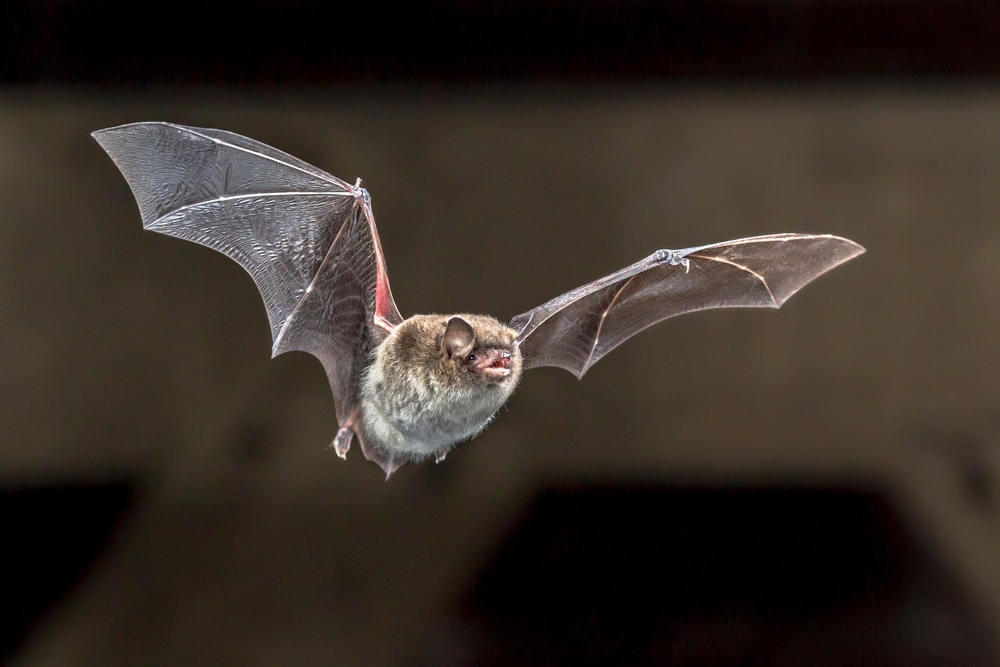How do I get rid of bats? Uninvited “guests” upset one homeowner.
Q: How do I get rid of bats? I have a large colony of bats in my fireplace and some in my walls. Two weeks ago I alerted the property management and they sent out professionals. The professional sent them a report and a cost estimate and I’ve heard nothing back even though I have contacted the property management again.
I’m sitting here on a Sunday morning listening to them inside my walls. How do I get rid of bats from my fireplace and my walls? I have been fighting rats all year and I only lived here less than two years. It seems like whenever there is a problem here that exceeds whatever their cost limit is they ignore the problem.
I believe I have invested in a lemon and I am a widow with an autistic son and no other family. I have no support system and would greatly appreciate your help in this matter. Thank you very much!
Get rid of bats fast
A: In all the years we’ve been writing this column, we’ve never had anyone complain about a bat colony living in their walls. Skunks, chipmunks, birds, ants, cats and other animals and insects, yes. These have all regular – if unwelcome – visitors to our walls, attic and basements.
Bats are amazing creatures that eat insects, but they can carry disease and their droppings can leave bad odors. For you, clearly, the associated noise is an issue along with any other issues that come with having them live in your walls.
Your condo association should take care of removing the bat colony
If you had a bat flying about the interior of your home, it might be your problem. But having a bat colony living inside the walls or just inside the siding would imply that they have taken up residence in a common area. Common areas are typically the purview of the homeowners association, not the individual unit owner.
So why hasn’t your building management dealt with this issue? It appears that once you called to report the problem, the building manager called a professional wildlife removal or pest control company. At that point, the building should have evaluated the bid for the removal of the colony and either solicited other bids or made a plan to have the work completed.
Removing a bat colony can be expensive
It’s possible that this has been scheduled, but the contractor couldn’t tackle it immediately. Or, perhaps the infestation is so big that removal is only one part of the solution. Perhaps another contractor needs to be engaged who can rebuild the siding. It’s likely the cost for the removal and repair of the wall was high enough that the building manager needed to get approval for the expense from someone on the association board.
Building manager should give you schedule to get rid of bats
While all of this sounds sort of normal, they may actually be doing something. They just haven’t communicated it to you. On the other hand, if they’re not taking it seriously, it would be time to make some more noise yourself. Call the building manager and follow up. Try to get the manager to confirm a date when the work will begin. If you don’t get an answer, call the president of the board or show up at the next board meeting to discuss the issue and ask the board to commit to a remediation schedule.
The risk of rabies or other issues caused by the bats living in the walls of your development could be a problem for all of the residents in your building.
Some states require you to report before you get rid of bats
In some states, residents are asked to report bat colonies. In Massachusetts, the government has published a Massachusetts Homeowner’s Guide to Bats, offering advice on how to report, evict or relocate bat colonies. The guide also helps you identify the nine bat species living in Massachusetts. Bat Conservation International offers additional information about why bats take up residence in houses (hint: for the same reasons you do: It’s warm, dry and safe). Bat World Sanctuary offers local resources for some U.S. residents who can rescue bats from your home and relocate them. Or, reach out to your local municipality or city government. Ask for help from the wildlife rescue team.
With enough noise from you, the property manager will get the work scheduled. Just make sure you understand what this will entail and then ask what they are planning to do to prevent this from happening again.
Good luck!
Read more about pests and infestations in the home:
Do you have a bird nest in your dryer vent?
Home inspector misses termites







Leave A Comment